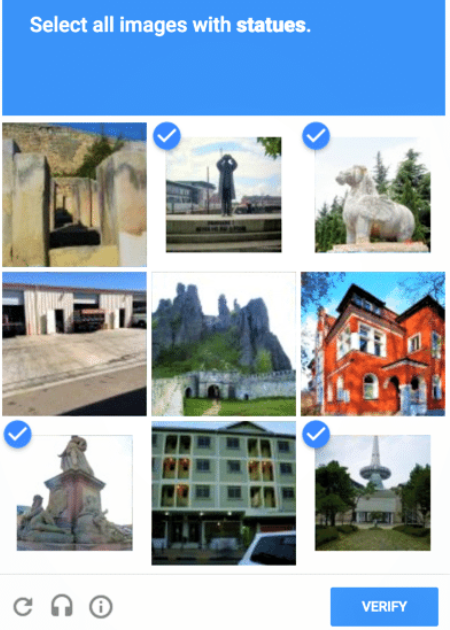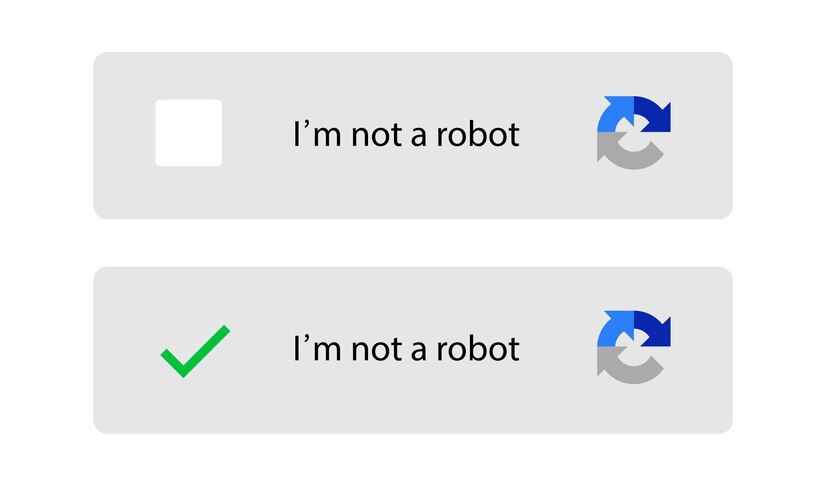24 June 2024 |
By - Sudha Mariappan

What is a CAPTCHA?
We need CAPTCHAs to protect our websites from bots, which can be harmful and malicious. CAPTCHA, abbreviated as Completely Automated Public Turing test to tell Computers and Humans Apart, is used to tell apart a human and a bot so that your website doesn’t get hacked or infected by a virus which might completely ruin your sensitive data.
So what is the meaning of CAPTCHA?
It is a type of challenge test used by humans to prove that they’re not bots.
The concept is simple, when we open a website, a challenge appears where we have to solve a basic puzzle enough to be understood by humans but not bots.
The truth is, bots can fail to comprehend basic human knowledge, math, or puzzles compared to complex algorithms. So when a puzzle is presented in front of bots to type a series of numbers and texts overlapping, bots get confused when they try to solve it.
In this way, CAPTCHAs make sure no bots hack your website and harm your valuable data.
However, when we implement CAPTCHAs, we need to note that it not only creates a protective wall on our website but also completely takes into account user satisfaction.
Let’s see how CAPTCHA works and if it is really required for security.
What is CAPTCHA Code?
A CAPTCHA code is a simple challenge given to you to prove yourself human. As explained above, these tests often present tasks that are simple for us humans but difficult for automated bots to comprehend.
Let’s see what are the common CAPTCHA types:
Types of CAPTCHA Codes:
Text based CAPTCHAs: You’ll be getting a distorted text which overlaps on each other as CAPTCHA to solve. Users can easily decipher these kinds of text based CAPTCHAs as it is easy to decode through the naked eye if observed enough. This is a traditional form of captcha used against basic bots, but unfortunately people with visual impairments have a hard time with these CAPTCHAs.

Source: CAPTCHAimages
Image based CAPTCHAs: Now the challenge has been slightly improved and instead of distorted text, this time a set of image boxes are presented in front of you. You just need to select a set of one category they ask you to. For example, if the CAPTCHA asks you to select the images containing statues, you would naturally go for statue images. Again, despite this being user friendly and might even be fun to solve, it does not help the visually impaired.

Source: ResearchGate
Audio CAPTCHAs: This type of CAPTCHAs provide an alternative solution to the visually impaired users. It usually involves listening to a set of numbers or words and you have to type them in. But due to the advancements happening especially in voice recognition, this particular CAPTCHA is not widely used.
reCAPTCHA: This is interesting because this CAPTCHA, developed by Google, is the version where no text or images are needed to solve. It only requires a single click to prove you’re not a robot. It is always in a checkbox labeled "I'm not a robot", and you just have to click the checkbox. However, the trick here is it tracks your mouse movements and analyzes whether it is a human or a bot. If a human is clicking on the checkbox, the slight amount of random strokes you make give you away as a human.

Also read: Welcome to the New Era of Social Proof for High Engagement, Where It's More Than Just Customer Testimonials.
Why is CAPTCHA Used?
It is common knowledge that CAPTCHAs are used for website protection and security. Other than that, they serve multiple purposes across various online platforms:
Stop Robot Abuse:
The CAPTCHAs prevent bots from spamming websites with comments, creating fake accounts, or sending junk messages. Due to this protection, you can have a smooth experience and also preserve the websites’ data.
CAPTCHAs protect online polls by ensuring the accuracy of the results in a survey or poll by making sure votes or submissions are real users, and not automated or users with bad intentions.
The CAPTCHAs strengthen the login and register ends with some added security by preventing brute force attacks such as virus attacks and creation of unauthorized accounts.
Websites often deploy CAPTCHAs to prevent bots from scraping content or data that could be used for ill purposes or competitive advantage.
Enhancing Security:
CAPTCHAs use the automated bots’ to catch a user using stolen usernames and passwords to enter a website, thereby protecting the user from unauthorized entry.
A Distributed Denial of Service (DDoS) attack is an attempt to get your website’s traffic down by controlling your surrounding devices, especially the IoT ones. The telltale signs are when your website shows the users as unavailable, which means one of the IoT devices has been hit by malware, resulting in the traffic blockage to your website.
CAPTCHA prevents distributed denial of service by making sure the incoming traffic is human, not some bot.
The CAPTCHAs defend the e-commerce websites from automated bots that suddenly spam with fake promotional offers, discounts, or product availability. This prevents disruption of the user experience.
Benefits of using CAPTCHA:
Having a CAPTCHA on your webpage offers several key benefits:
CAPTCHA is secured: CAPTCHAs are primarily used to double your website’s security from automated bot attacks. They act as a guard, making sure only humans can access your website and data. Letting bots into your website can lead to several viruses and damages.
Spam Reduction: They help reduce spam from bots by making sure the information on submission forms, comments, and email sign-ups is done by humans.
Resource Protection: Bots might attempt a lot of times to get into the website. Therefore, CAPTCHAs prevent abuse of online services and resources, such as by limiting the number of requests that can be made to a server. In this way, the resources of the website are protected.
Enhanced User Trust: People are automatically connected to e-commerce, online banking, and social networking websites. When users see that a website uses CAPTCHAs for security purposes, it often makes people believe in them.
Provides Online Job Opportunities: Online jobs such as Captcha typing jobs involve solving CAPTCHA tests to earn money. This type of work is offered by companies that are in need of solving a huge number of CAPTCHAs to access restricted websites or automating certain tasks.
The job teaches you how to enter Captcha correctly and the basics of how to write CAPTCHA code. Each correctly entered CAPTCHA earns a small amount of money. They are mainly paid by the volume of CAPTCHAs solved.
However, in all jobs, there are ethical and unethical practices.
Therefore, before joining a CAPTCHA typing job, make sure to check out the company website and see whether the CAPTCHA services are actually required ethically.
Subscribe to our blog section for more such information. Make sure to check out our website to avail yourself of the services we offer at Ontogen Digital, a leading Digital Marketing agency. Connect with us at info@ontogendigital.com to learn more.